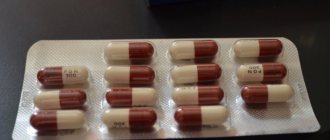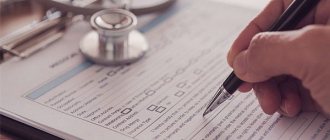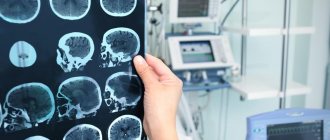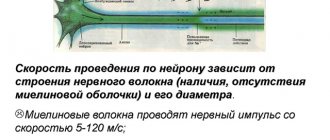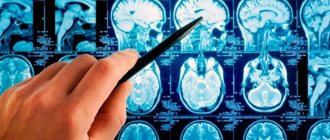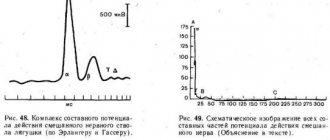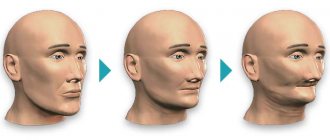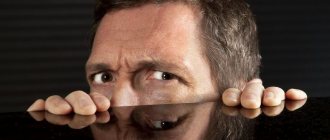A binge is a period of continuous drunkenness that lasts more than one day. It is rightfully considered one of the most severe manifestations of alcoholism. Often it is binge drinking that causes the destruction of a family and a host of complications, including the death of a person.
As a rule, the drinker cannot get out of this state on his own. Pharmacological remedies for binge drinking, sold in pharmacy chains, come to the aid of the patient. What medications are there to help you get rid of binge drinking, can you buy them without a prescription, how to take them - we’ll talk about this in this article.
Detoxification products
The main purpose of detoxification pharmaceuticals is to bind and remove alcohol residues, its breakdown products and other toxic particles. Detoxification does not cure alcoholism, it only helps the body quickly cope with poisoning,
The following groups of detoxification drugs are most often used to overcome binge drinking:
- Absorbents designed to collect and retain toxins on their surface or in their pores. The most striking representative is activated carbon. This is a cheap, natural, safe and quite effective first aid remedy for alcohol poisoning. It is taken at the rate of 1 capsule or tablet per 10-12 kg of weight. The maximum single dose is 15 tablets. Enterosgel, Smecta, Polysorb can be used as absorbents. They are available in tablet or powder form and are taken orally.
- Infusion detoxification solutions. Prescribed to increase blood volume and accelerate the removal of toxins from excess fluid through the kidneys. In this case, crystalloid (based on sodium chloride), colloid solutions - polyglucin, reopliglucin, hemodez, gekodez, and other plasma substitutes can be used. Administered intravenously.
- Laxatives and emetics. The greatest effect is provided by fast-acting medications - castor oil or 25% magnesium sulfate solution.
You need to understand that taking laxatives and absorbents is justified only in cases of minor poisoning or short-term binge drinking, in which there is no significant deterioration in well-being. In all other situations, infusion therapy is required.
Medications for withdrawal symptoms
This group is aimed primarily against hangover and withdrawal symptoms.
This includes:
- Vitamin complexes. Long-term consumption of alcohol-containing drinks destroys vitamins and accelerates their removal from the body. This creates a shortage of vital ingredients. Vitamin C improves immunity and tones the body, B vitamins accelerate blood flow and improve brain function, nicotine restores blood flow through the vessels, promotes detoxification, metabolism and liver function.
- Antihypoxants and metabolites - accelerate interstitial processes, saturate cells with oxygen, which leads to rapid oxidation of toxic substances. Often mildronate, fezam. Succinic and citric acids effectively fight hangovers. They activate tissue metabolism and the functions of organs and tissues, increase efficiency, mental ability, and reduce the toxic effects of alcohol molecules.
- Sedatives and sleeping pills. They allow you to improve the functioning of the nervous system and provide protection to its cells during withdrawal and recovery from it.
Combination medications have proven themselves to be effective:
- Cytoflavin – contains succinic acid, riboflavin (vitamin B2), nicotinamide (vit. PP), riboxin (metabolite). Cytoflavin enhances aerobic glycolysis and the synthesis of γ-aminobutyric acid in neurons, increases the resistance of glial and nerve cells to ischemia, accelerates blood flow and metabolic processes in the central nervous system. Its administration contributes to the regression of neurological symptoms, the elimination of disturbances of consciousness, and the return of cognitive functions of the brain.
- Reamberin – contains meglumine (N-methylglucamine), succinic acid, sodium, potassium, magnesium ions. Reamberin not only accelerates aerobic processes in cells, restoring their energy potential, but also has a moderate diuretic effect. It is administered intravenously (slowly!) at a rate of 6-10 ml/kg.
How do drugs work?
The transmission of impulses in the nerve tissues of the brain, which regulate mood and emotions, occurs with the help of special compounds - mediators. Violation of the content of mediators leads to the formation of a depressive state. Antidepressants are practically non-addictive and have the ability to regulate and normalize the balance of mediators, which causes a decrease and complete disappearance of painful manifestations. The doctor’s task is to determine the required group of antidepressants and select the most suitable drug for the patient. During the treatment process, the specialist closely monitors the person’s condition and adjusts the dose, and sometimes changes the medication.
Adjuvant therapy
When recovering from a drunken state, great attention is paid to stabilizing the functioning of internal organs.
In this case, the following may be prescribed:
- Pharmaceuticals containing sodium, potassium, calcium, magnesium - these minerals are necessary for the functioning of internal organs, and with prolonged alcoholism, their deficiency occurs. A prominent representative of this group’s means of breaking up binge drinking is Methusol. Administered intravenously, it has a rehydrating, diuretic, detoxifying, and antioxidant effect. With its help, rapid replenishment of circulating blood volume during hypovolemia is achieved, blood viscosity is reduced, its rheological properties are improved, and tissue dehydration is prevented. Exhibits a hemodynamic effect, promotes cell adaptation to lack of oxygen.
- Hepatoprotectors necessary for the protection and restoration of liver cells. This can be Heptral, Essentially, administered intravenously. An excellent effect is provided by Remaxol®, containing succinic acid, meglumine, riboxin, methionine, nicotinamide, sodium, potassium, magnesium chlorides, sodium hydroxide. It reduces bilirubin, improves the release of direct bilirubin into bile and the oxidation of cholesterol.
- Nootropics – improve brain function. The most commonly administered drug is Piracetam.
Classification of drugs, features of the action of the main representatives
Currently, a variety of drugs are used in medicine to eliminate depression. Each of them has its own characteristics of use, specific side effects, which the doctor necessarily focuses on when prescribing.
Representatives of the tricyclic series have been used in the treatment of depression with tablets for quite a long time, since the 50s of the 20th century. They got their name because of their chemical structure, which includes “three rings.” When taken, they cause an increase in norepinephrine levels in the brain, leading to mood stabilization.
The influence of these medications on other mediators provokes the development of side effects, which limits the effect of tricyclic drugs, and their use requires special monitoring by physicians.
It is important to remember that these medications are contraindicated in patients suffering from suicidal thoughts.
Monoamine oxidase inhibitors (MAO). By inhibiting the action of the enzyme monoamine oxidase, which can destroy norepinephrine, serotonin and other neurotransmitters, monoamine oxidase inhibitors level out the background of these mediators when they are in excess, thus improving the mood of patients.
If a doctor prescribes drugs from this group for the treatment of depression, he will carefully examine the patient for the presence of other diseases. Since the use of other drugs for various pathologies is often incompatible with therapy with MAO inhibitors.
Currently, selective serotonin reuptake inhibitors are more often used. They mainly affect the metabolism of serotonin. This selective action is also responsible for the smaller side effects of antidepressants in this group.
Among other groups of antidepressants available in the doctor’s arsenal, medications with a predominant sedative (calming) effect should be highlighted. There are also drugs with the opposite – stimulating effect. Some medications used for depression also include:
- NASA antidepressants - have a similar effect to norepinephrine and serotonin.
- Dopaminergic drugs – promote the accumulation of dopamine in synapses.
- Noradrenergic - increase the amount of norepinephrine.
- Melatonergic drugs (MDs) act on deep brain structures.
Drug treatment of depression in women often takes place against the background of prolonged and uncontrolled use of tranquilizers, which have caused drug dependence in patients. Refusal of these drugs is accompanied by a pronounced depression of the patient’s general condition. In this case, specific medications are used, for example, Trittico.
A feature of the action of all drugs of this kind is the gradual development of the effect; sometimes the result of taking the drug can be seen only after a month. Medication therapy must be accompanied by psychotherapy and the use of other techniques.
The text was checked by expert doctors: Head of the socio-psychological service of the Alkoklinik MC, psychologist Yu.P. Baranova, L.A. Serova, a psychiatrist-narcologist.
CAN'T FIND THE ANSWER?
Consult a specialist
Or call: +7 (495) 798-30-80
Call! We work around the clock!
Over-the-counter tablets
Medicines aimed at combating alcoholism should be prescribed by a narcologist. However, there are also those that can be used in a variety of cases without serious danger. Among them:
- Glycine. It has an antidepressant effect. It is used to improve a person’s psychological state in combination with many other methods of therapy.
- Medichronal. These tablets have a detoxifying effect, stimulate metabolic processes, increase the activity of the cerebral cortex, which can improve the psycho-emotional background, relieve stress and improve sleep. In addition, Medichronal has a positive effect on liver function.
- Proprothene-100. Classified as a homeopathic medicine, it also has antidepressant properties. Allows you to achieve the required concentrations of biologically active substances in the human brain, helps reduce cravings for alcohol.
Herbs and fees
It should be noted that there are a fairly large number of folk remedies that can be used for heavy drinking. Some of the herbal medicines in the form of special filter bags are sold in modern pharmacies. These include:
- Stopped. The composition includes a large number of herbs: tansy, centaury, thyme, wormwood and others. They can improve digestion, choleretic processes, psycho-emotional background, and also significantly reduce the craving for drinking alcohol.
- Aralia tincture. Helps restore adrenal function and strengthen the nervous system.
All of them are sold without a prescription.
Need some advice?
OR CALL A DOCTOR
CALL!
+7
Use of tranquilizers
The main indications for taking these drugs are mild mental disorders and behavioral disorders:
- Neuroses. Neurosis-like conditions.
- Personality disorders.
- Anxiety disorders: panic attacks, phobias, generalized anxiety disorder, mixed anxiety and depressive disorder.
- Withdrawal state (withdrawal syndrome) with alcohol, nicotine, drug addiction, substance abuse and polydrug addiction.
- Depression with anxiety.
- Schizotypal disorder.
- Acute psychoses (in combination with other drugs).
- Consequences of organic damage to the central nervous system with mental disorders
- Behavioral disorders in children and adolescents.
- Insomnia.
- Eating disorders (anorexia, bulimia).
- Psychosomatic diseases: eczema, irritable bowel syndrome, “neurogenic bladder”, asthma attacks, hypertension and arrhythmia.
In addition, they are widely used in neurological practice: consequences of traumatic brain injuries, strokes with increased muscle tone, epilepsy, spinal osteochondrosis, etc. In therapeutic practice: functional disorders in the gastrointestinal tract, cardiovascular, urinary and other body systems.
Is it possible to take tranquilizers on your own without a doctor?
No. These are psychotropic drugs that have their own contraindications and limitations. Self-administration is life-threatening.
Can you buy tranquilizers without a prescription?
No. They are prescribed only on prescription by a doctor who has grounds for prescribing this drug. Two tranquilizers are prescribed on special strict reporting prescription forms (form 148 - 1/u - 88), these are sibazon and alprazolam.
What are the most powerful tranquilizers?
Sibazon and alprazolam.
What are daytime tranquilizers?
Since most tranquilizers tend to cause daytime sleepiness, drugs have been synthesized without this side effect. These include: gidazepam, clorazepate, tofisopam, hydroxyzine, mebicar.
What is the difference between tranquilizers and antidepressants? Do they have anything in common?
The difference between them is in the mechanisms of action (they act on different types of receptors). They have different therapeutic effects (anti-anxiety and antidepressant, respectively). Tranquilizers are often prescribed once or in short courses, antidepressants are prescribed for a long time, several months.
What they have in common is that they are all psychotropic drugs. Some drugs from these groups can give a hypnotic, sedative and anti-aggressive effect.
